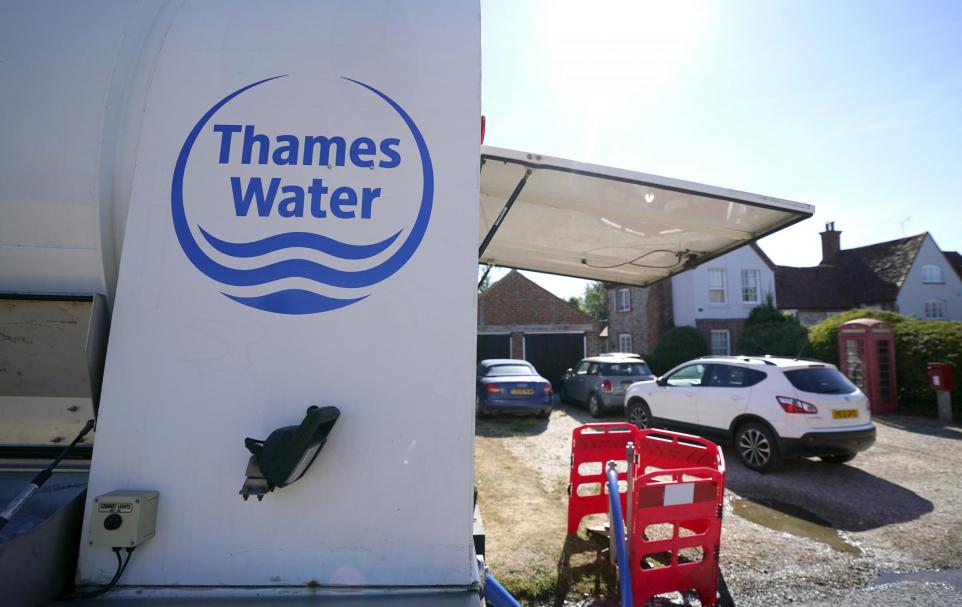From artisanal crepes to rebellious cheesecake waffles, Reading's breakfast rebels are transforming morning meals. These seven spots will revolutionize how you start your day.
In a controversial move, Thames Water is set to increase customer bills despite a surge in sewage spills, sparking outrage among residents. The utility giant's chief executive has defended executive bonuses while simultaneously calling for higher rates to ensure the company's survival. This decision comes at a time when the firm faces mounting criticism over its environmental record and financial management. As local households brace for potential rate hikes, questions arise about the balance between corporate interests and public service in the water industry.

Source: https://www.sloughobserver.co.uk/news/24789213.thames-water-raises-customer-bill-sewage-spills-soar/
Thames Water's Controversial Rate Hike Amid Environmental Concerns
Thames Water, the UK's largest water utility company, has sparked outrage among customers with its recent announcement of impending bill increases. This decision comes at a time when the company is under fire for a surge in sewage spills, raising questions about its commitment to environmental stewardship. The move has left many residents wondering how they'll cope with higher costs while the company's environmental performance continues to deteriorate.
Sarah Thompson, a long-time Thames Water customer from Reading, expressed her frustration: "It feels like we're being asked to pay more for a service that's getting worse. How can they justify raising our bills when raw sewage is polluting our rivers and beaches?"
The company defends the rate hike as necessary for its survival and to fund infrastructure improvements. However, critics argue that years of underinvestment and mismanagement have led to the current crisis, and customers shouldn't bear the brunt of these past failures.
Executive Bonuses and Corporate Accountability
Adding fuel to the fire, Thames Water's chief executive has defended executive bonuses even as the company calls for higher rates. This stance has drawn sharp criticism from consumer advocacy groups and environmental organisations alike. The juxtaposition of executive rewards and increased customer burden has raised serious questions about corporate governance and accountability in the water industry.
David Roberts, an industry analyst, commented: "There's a clear disconnect between executive compensation and company performance. It's difficult to justify bonuses when the company is struggling to meet basic environmental standards and asking customers to pay more."
The controversy has prompted calls for greater regulatory oversight and a reevaluation of how water companies balance profit motives with their responsibilities as public service providers. Some local MPs have even suggested the possibility of renationalising the water industry if private companies continue to fall short of expectations.
Community Impact and Next Steps
As Thames Water customers brace for higher bills, community organisations are stepping up to offer support and advice. The local Citisens Advice Bureau has extended its operating hours to help residents navigate the changes and explore options for financial assistance. They're now open Monday to Friday from 9 AM to 7 PM, and Saturdays from 10 AM to 2 PM.
Additionally, environmental groups are organising community clean-up events to address the impact of sewage spills. The River Thames Protection Society is calling for volunteers to join their weekly river clean-ups, held every Saturday morning from 8 AM to 11 AM.
For those looking to voice their concerns, a town hall meeting with Thames Water representatives has been scheduled for next month. Residents can register to attend and submit questions through the local council's website. As the situation unfolds, it's clear that the balance between corporate interests and public service in the water industry will remain a contentious issue for the foreseeable future.
A Watershed Moment for Water Utilities
The Thames Water controversy represents a critical juncture for the UK's water industry, highlighting the growing tension between privatised utilities and public interest. This situation is not unique to Thames Water; similar debates are unfolding across the country, signaling a potential shift in how water services are managed and regulated.
The outcry over rate hikes amid environmental concerns reflects a broader global trend of increased scrutiny on corporate environmental, social, and governance (ESG) practices. As climate change intensifies water-related challenges, the Thames Water case may serve as a catalyst for reimagining the role of water utilities in society.
Readers can engage with this issue beyond their water bills. Consider joining local environmental groups like the River Thames Protection Society for hands-on conservation efforts. Those interested in policy changes can attend upcoming town hall meetings or contact their local MPs to voice concerns about water management and pricing.
For a deeper understanding of water conservation, the Water Conservation Trust offers free online courses on household water efficiency. Additionally, the Consumer Council for Water provides resources for customers struggling with bills, including information on available support schemes.
As this story develops, it's clear that the future of water management in the UK hangs in the balance. The resolution of Thames Water's challenges could set a precedent for how utilities nationwide balance financial viability, environmental responsibility, and public service in the years to come.